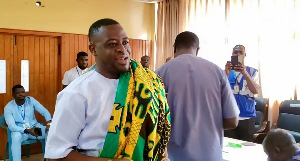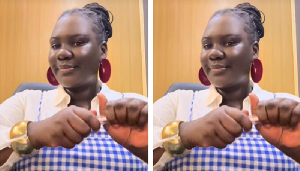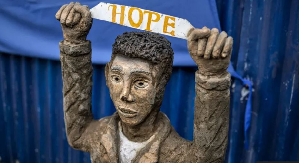Dr Albert Owusu-Barnafo, the star witness in the Ghana Rubber Estates Limited (GREL) divestiture case, on Monday debunked notion by defence counsel that he was the brain behind "political payments" made by Societe Industrielle Plantation Hevea (SIPH).
Answering questions under cross-examination, Dr Owusu-Barnafo disagreed with a suggestion by defence counsel that in his evidence, Etienne Marie Arthur Popeler, second prosecution witness, created the impression that he, Dr Owusu-Barnafo was the main architect behind monies withdrawn from SIPH's accounts for the payments.
He further denied any knowledge about the list of payments, which SIPH, the French-based majority shareholders of GREL, made to the four accused persons on trial at an Accra Fast Track Court (FTC), as well as other individuals to influence GREL's privatisation. "I have constantly stated in this court that I am not the author of the document. Any information I have on the payments made, in which I was involved, I have told the court."
The four, who are being tried on various charges of corruption are Hanny Sherry Ayittey, treasurer of the 31st December Women's Movement (DWM), Emmanuel Amuzu Agbodo, former Executive Secretary of the Divestiture Implementation Committee, Ralph Casely-Hayford, a businessman and Sati Dorcas Ocran, a housewife.
They have all pleaded not guilty to the various charges and the trial judge, Mr. Justice J C Amonoo-Monney, an Appeal Court Judge, hearing the case as an additional High Court Judge, has granted each of them a self-recognisance bail.
Dr Owusu-Barnafo told the court that since the record of payments, which SIPH made to him to be paid out was his personal document, it was only the court that could order him to produce it. He disagreed with a suggestion by Johnny Quarshie-Idun, counsel for Ayittey, that monies that SIPH paid in the course of GREL's privatisation, were not meant for a worthy course.
"The recipients were known and verified, while SIPH the donor, had good intentions for disbursing those monies." Witness disagreed with counsel's suggestion that there was nothing on record to show that an amount of $250,000 was given to Ayittey. The case has been adjourned to Thursday, 14 November for counsel to continue with cross-examination.












